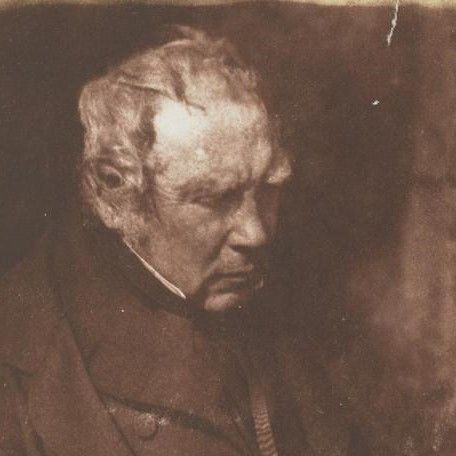Whom You Serve, How He Saves, How You Live
The popular catchphrase, “all paths lead to God” is simply false. While the invitation to salvation is inclusive and extended to all, the gift of salvation is exclusive to only those who believe in the one true God.

Christianity & The Nature of God
It’s vital for the disciples to understand the nature of their Master. Who is God? If we don't have a biblically & theologically accurate answer, there might be a chance that we are worshiping a god of our imagination.
Christian theology is unique and distinct in its claims about the nature of God, when compared to other worldviews. In Christian monotheism, God is a Trinity. There are three Persons in the Godhead: The Father, the Son, and the Holy Spirit. While in Islam, Allah is not a trinity. In Hinduism, there is a pantheon of deities. So, the God Christians worship fundamentally differs from deities of other religions. The Christian God is personal, immaterial and transcends space and time, while in Hinduism, the material world itself is a part of impersonal Brahma. So, the claim that all religions worship the same God but in different names is an uninformed and ignorant assertion. The popular catchphrase, “all paths lead to God” is simply false. While the invitation to salvation is inclusive and extended to all, the gift of salvation is exclusive to only those who believe in the one true God. Jesus said, “I am the way, the truth, and the life, nobody comes to the Father except through me.” Christianity is unique from other world religions as it is intellectually reasonable and historically reliable. These facts can be tested and verified empirically, as they are deeply rooted in history. The historical facts about the life, death and resurrection of Jesus can be explored & verified. Some of the attributes of Judeo-Christian God are: Omnipotence, Omniscience, Omnipresence, Eternity, Omnibenevolence, Immutability, Incorporeality. Love is an essential attribute of God. God is love.
Christianity & Salvation
How does Jesus save you and everyone who accepts the gospel you share? How do we attain salvation? What should we do? Should our good deeds outweigh our bad deeds so we can secure a place in heaven? Or does God grant you heaven if you run a charity organization for orphans?
In other forms of religion, the way of salvation is to earn God’s merit and favour by championing a system of good deeds. How can we ever match the standard of an infinitely good and perfect God? We can never earn His favour through our own works. We are fallen and basically evil and in need of a Saviour. So the second person of Trinity, Jesus was sent to pay the price of our mistakes and meet the standard of God. In Christianity, God initiates the process of Salvation. He offers it as a free gift to those who place their trust in the risen Jesus. We serve a personal God, who wants to enter into a loving relationship with us. We all are in dire need of a savior, who could pay the price for our mistakes and save us from the eternal punishment that is due to us. That’s exactly what Jesus achieved on the cross. The cross is a beautiful display of God’s Love and Justice: He took upon Himself what’s due to us (punishment) satisfying the divine justice and gave us what is His (righteousness, eternal life). Despite our worst mistakes, God loves us, and chose us to be His. By placing our trust in Jesus, His righteousness is accredited (imputed) to us. Through Jesus, God sees imperfect humans as perfect and holy people. He blotted out all of our sins! This is awesome news! The Bible is clear that we have been saved by faith alone, but that in no way downplays your role in this world to be a light for others in the dark. Indeed, a true Christian will clothe the naked, feed the hungry and tend the wounded.
Life as a Christian
There may be preachers out there telling you that once you have become a Christian, your life is going to be filled with prosperity. But is it true about actual Christians? What does the bible say?
We have hope in this hopeless world and in spite of the suffering, there is meaning and hope, which carries you through as a Christian. Please don’t get the impression that your everyday problems in this world will be gone once you become a Christian. No! Christianity does not offer any quick fix or fancy spell that will eliminate your problems! Indeed, Jesus says that there will be troubles in this world. The mainstream cry of this generation is that the goal of life is to be happy. But chasing happiness as an end in itself is a shallow and worthless pursuit. The purpose of life should be to seek the supreme Good: God Himself. From meeting that key primary purpose, we derive all other meaningful purposes for our life. Christianity is experientially relevant, meeting you wherever you are in your daily life. We have been called to live in the light of eternity, as this world is a temporary place and is going to fade away. As a disciple of Jesus, we are representing the Creator God, to this creation and others who are in need of hope and grace. Hence, all the gracious works and good deeds you do become eternally meaningful as a Christian. C.S. Lewis writes, “Christianity, if false, is of no importance, and, if true, of infinite importance. The only thing it cannot be is moderately important.”
Your life doesn’t end at the grave. The material perishes, but the immaterial lives on, so the choices you make today determine what happens to your soul. “What do you benefit if you gain the whole world but lose your own soul? Is anything worth more than your soul?” (Matt16:26) The last book of the Bible, Revelation, talks about Heaven as the whole of reality being transformed. The Bible speaks of a new heaven, and a new earth, where those who trust in Christ will be resurrected, with newly glorified bodies. Christ will return to this earth as He has promised to establish His unending kingdom. God and humankind will once again be in close relationship.

This article is an excerpt from the 7-day Bible plan by SAFT: Faith Explored—Navigating the Christian Worldview on the YouVersion Bible App.





Comments ()